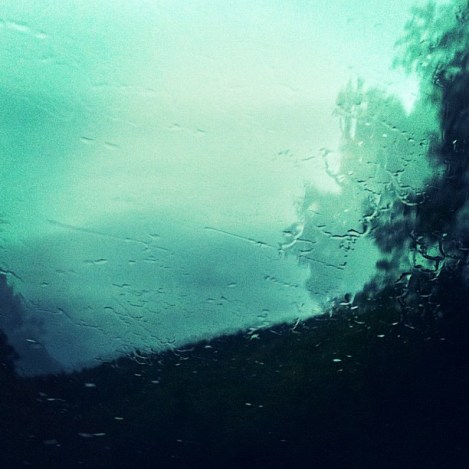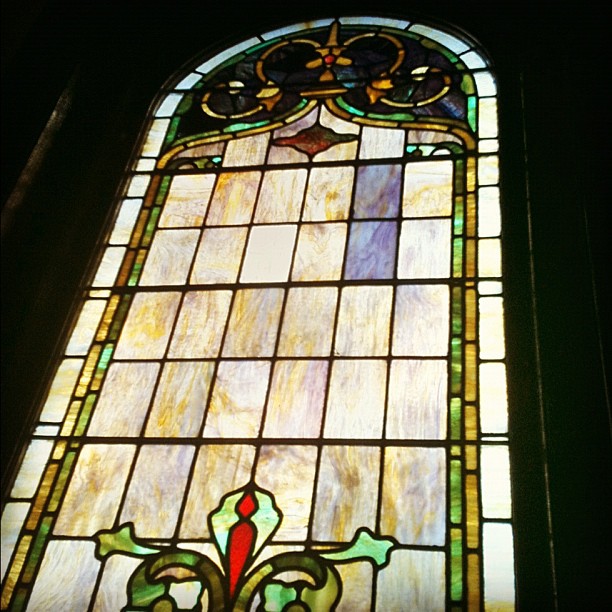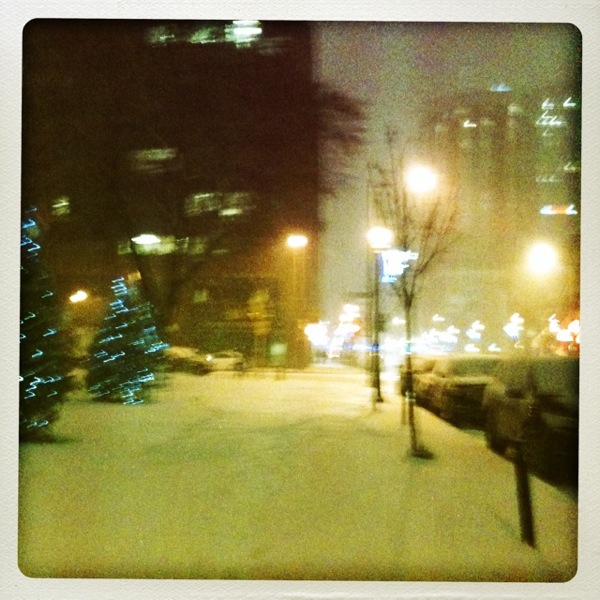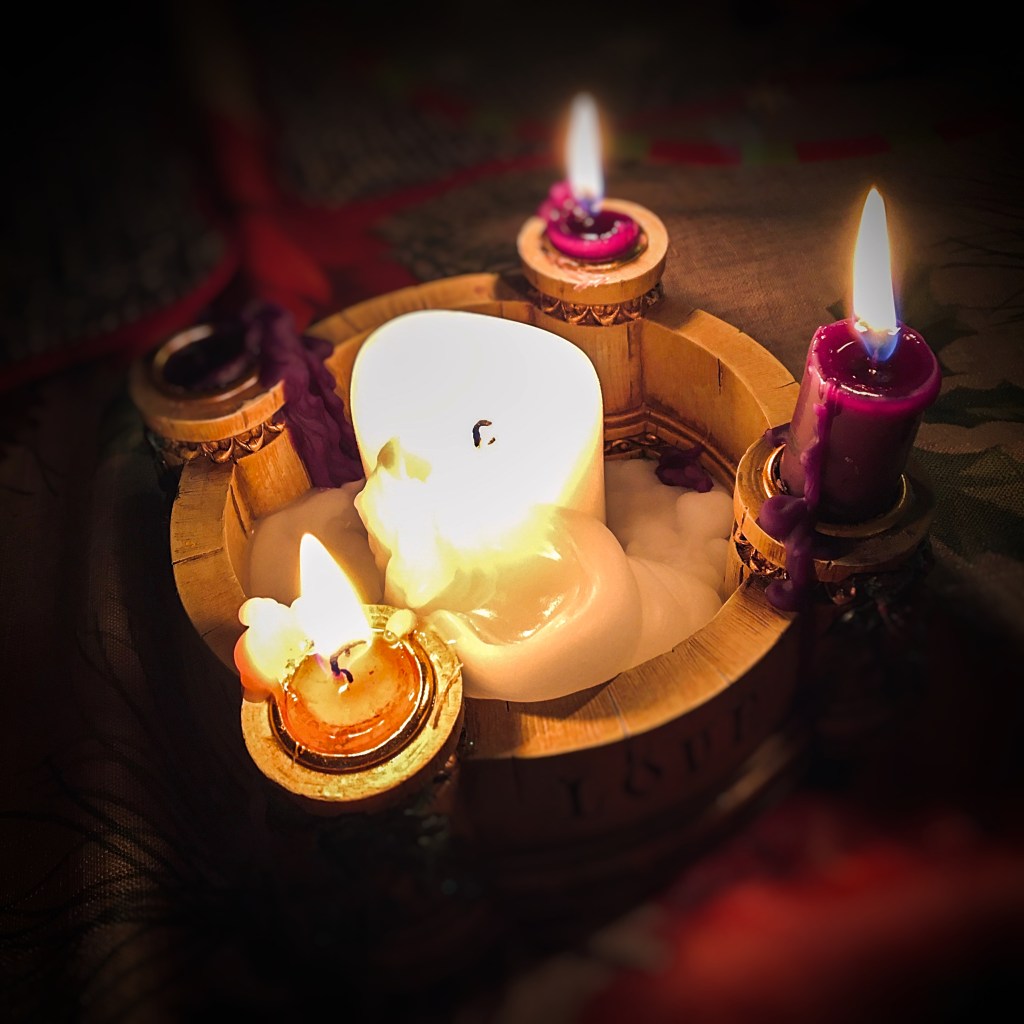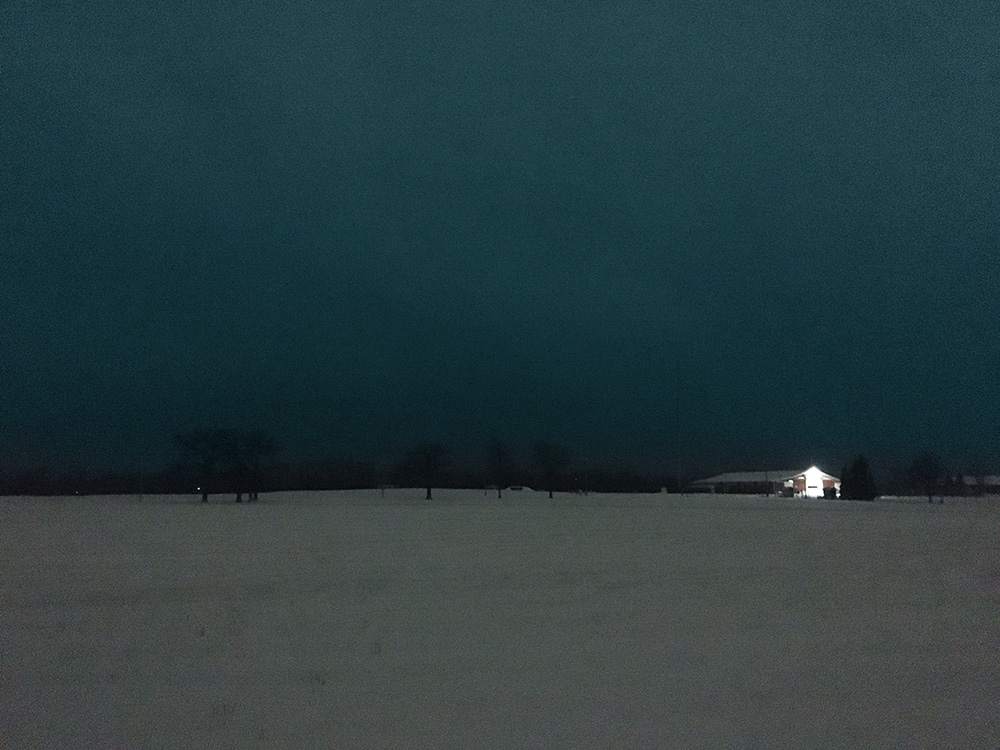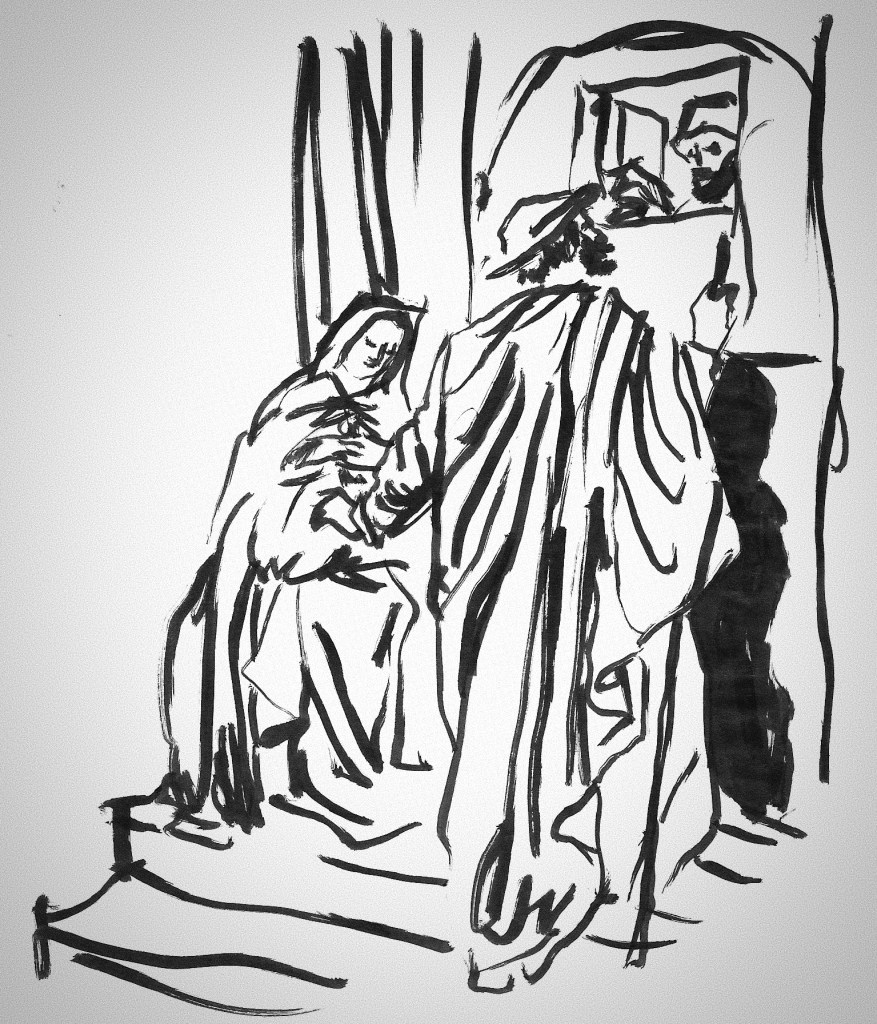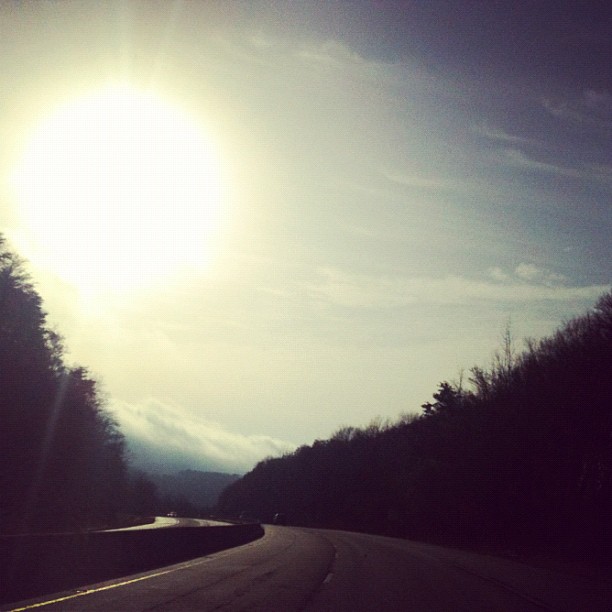
Saturday, the first weekend in April, snow fell thick all afternoon. A recording of Bach played from the living room stereo.
As I cleaned the kitchen, I remembered a conversation from earlier in the week. After a long thirteen-hour day, my co-worker asked what kind of books I’ve read recently. I shared a few titles. She replied, “Oh, wow, you read the classics. I only ready modern fiction.” It stung a bit. And I wanted to defend myself from being considered a fossil. The truth of the matter is that I do, in fact, read old books. And I enjoy reading them. But it does make conversations with people difficult.
I closed the dishwasher door and pressed the start button. I thought of another moment in the week. While troubleshooting a video looping file for a 42-inch display screen, I remembered how hungry I was that day. During lent, skipping one meal a day is manageable. Even if it was a long day. But it was more than “to keep/the larder lean. . . ” as Robert Herrick wrote in his poem “To Keep a True Lent.” [1] He concluded: “To starve thy sin,/Not bin;/And that’s to keep thy Lent.”
Another recollection while cleaning the kitchen. I read Geoffrey Hill’s translation of “Lachrimae Amantis.” [2] Hill’s poem was featured in an anthology. When I searched the public library system for his book Tenebrae I came up empty. (Not to be confused with his poem by the same name.)[3] Yet it seemed appropriate to consider “Lachrimae Amantis” on Passion Sunday.
At this dark solstice filled with frost and fire
“Lachrimae Amantis” by Geoffrey Hill
your passion’s ancient wounds must bleed anew
There was some leftover oatmeal at the bottom of a pot on the stove. As I cleaned the kitchen, I finished the rest of the steel cut oats with a sprinkle of brown sugar, almonds, a dozen raisins, and a tablespoon of yogurt. Is this breaking a lenten fast? Maybe I shouldn’t have added the yogurt. I washed it down with cup of black tea. Then proceeded to wipe down the stove top and counter. The oats and raisins reminded me of a poem by Dylan Thomas. The poem contains no Latin and no “thys.” Just the “oat and grape.”
This Bread I Break[4]
by Dylan Thomas
This bread I break was once the oat,
This wine upon a foreign tree
Plunged in its fruit;
Man in the day or wine at night
Laid the crops low, broke the grape’s joy.
Once in this time wine the summer blood
Knocked in the flesh that decked the vine,
Once in this bread
The oat was merry in the wind;
Man broke the sun, pulled the wind down.
This flesh you break, this blood you let
Make desolation in the vein,
Were oat and grape
Born of the sensual root and sap;
My wine you drink, my bread you snap.
NOTES:
[1] Robert Herrick’s poem “To Keep A True Lent. Accessed April 3, 2022. https://www.bartleby.com/360/4/180.html.
[2] Geoffrey Hill, Tenebrae (1979).
[3] Geoffrey Hill, “Tenebrae,” Accessed April 3, 2022 https://www.poetryfoundation.org/poems/48463/tenebrae.
[4] Dylan Thomas, This Bread I Break, Accessed April 3, 2022 https://allpoetry.com/This-Bread-I-Break.

